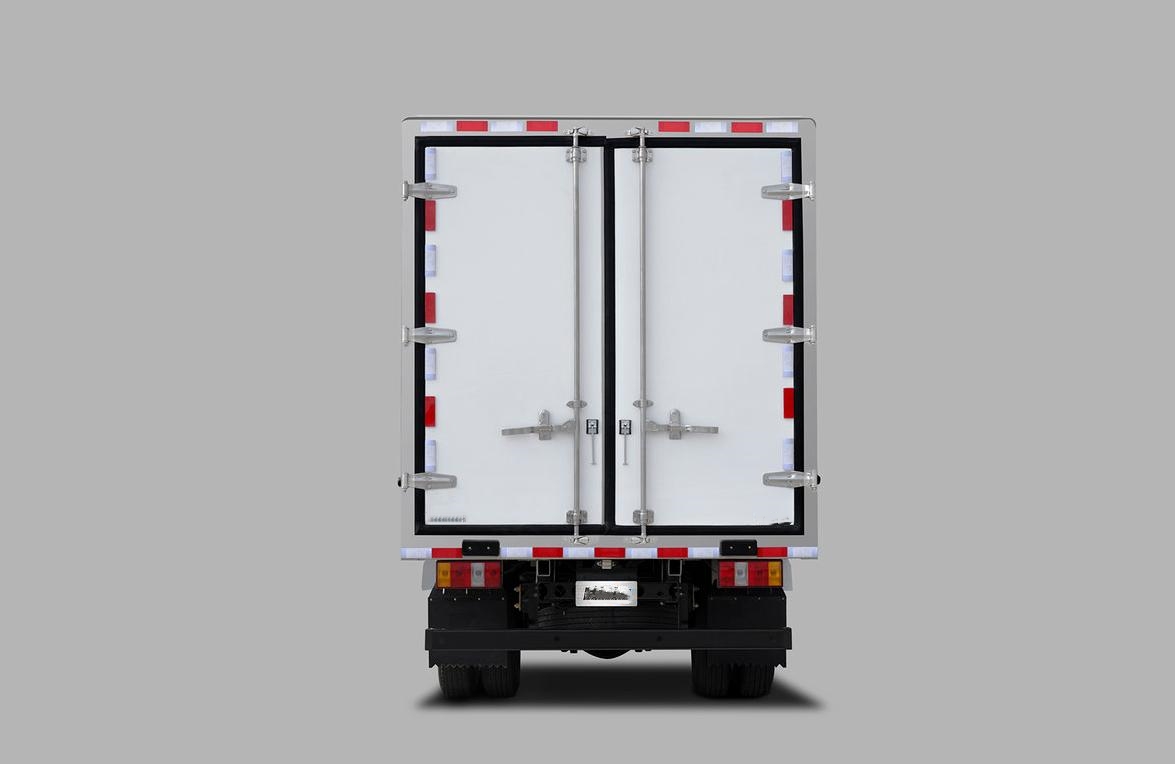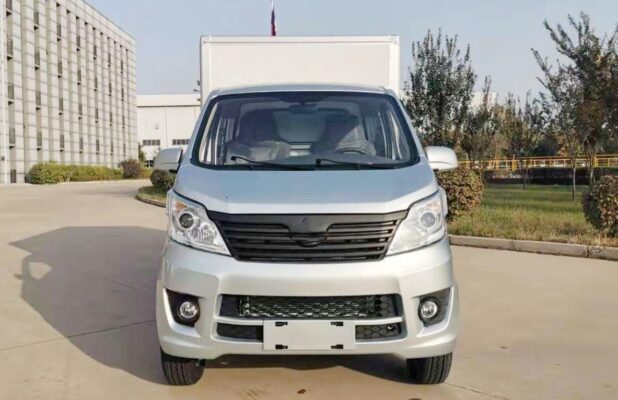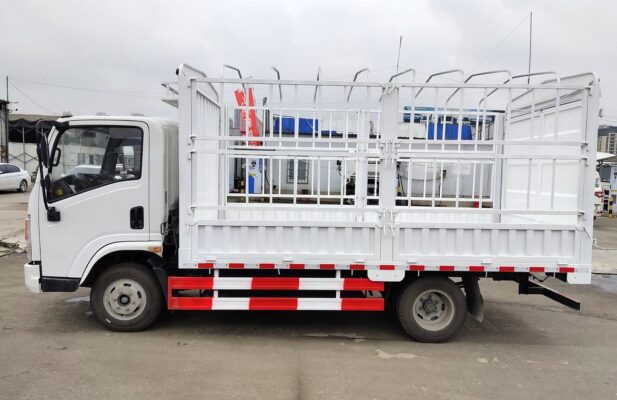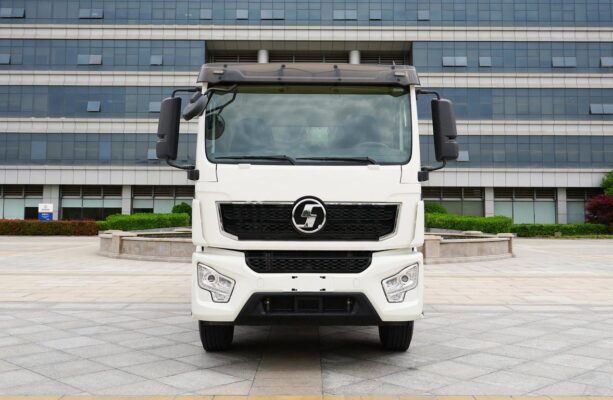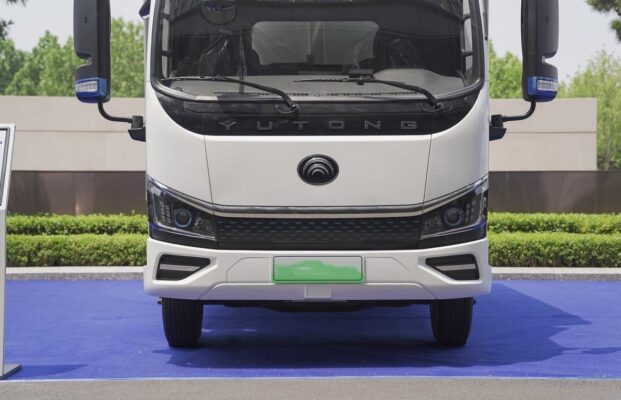Νέα για ηλεκτρικά φορτηγά
Why Are Electric Pickup Trucks Heavier?
Electric pickup trucks have gained immense popularity in recent years, driven by their eco-friendliness and innovative technology. Ωστόσο, a notable characteristic of these vehicles is their increased weight compared to traditional gasoline-powered pickups. Understanding the reasons behind this weight difference can shed light on the engineering choices made in electric vehicles (EVs) and their overall performance.
1.Reasons for the Increased Weight of Electric Pickup Trucks
Several factors contribute to the heavier weight of electric pickup trucks:
- Battery Weight:
At the heart of any electric vehicle is its battery pack, which serves as the primary power source. Electric pickups require large and powerful battery systems to deliver the performance, range, and towing capacity that consumers expect. The lithium-ion batteries commonly used in electric pickups are relatively heavy, and their weight significantly contributes to the overall mass of the vehicle. Για παράδειγμα, a typical electric pickup truck might have a battery pack weighing several hundred pounds, sometimes even exceeding 1,000 pounds, depending on its capacity. - Robust Materials:
To ensure durability and safety, electric pickups often incorporate sturdier materials in their construction. While traditional pickups might use a combination of steel and lighter metals, electric trucks often utilize high-strength steel, aluminum, and other advanced composites. These materials provide enhanced structural integrity and crash resistance, which are critical in a vehicle designed to transport heavy loads and navigate diverse terrains. Ωστόσο, the trade-off is an increase in overall weight. - Electric Components:
The electrical systems that power an electric pickup are more complex than those in traditional vehicles. Electric pickups feature electric motors, control systems, regenerative braking mechanisms, and various electronic devices that contribute to their performance and functionality. Each of these components adds weight, making the overall vehicle heavier than its internal combustion engine (ICE) counterparts. - Battery Capacity:
To meet the demands for range and performance, electric pickups are designed with higher-capacity batteries. These larger batteries are necessary to ensure that drivers can travel longer distances on a single charge and still have the power needed for tasks like towing and hauling. As battery capacity increases, so does its weight, further contributing to the overall heft of the vehicle. - Additional Equipment:
Electric pickups often come equipped with various features aimed at enhancing performance and safety. Για παράδειγμα, battery cooling systems are essential for maintaining optimal operating temperatures during use, especially under heavy loads or in extreme weather conditions. Επιπλέον, intelligent assistance systems, such as adaptive cruise control and collision avoidance technologies, may also be included. While these features improve the user experience and vehicle safety, they can add extra weight to the vehicle.
2.How Does the Weight of Electric Pickup Trucks Affect Performance?
The increased weight of electric pickups has various implications for their performance:
- Handling and Acceleration:
Heavier vehicles generally exhibit different handling characteristics compared to lighter ones. Electric pickups may feel bulkier and less nimble, particularly during sharp turns or rapid maneuvers. The additional mass can also affect acceleration, as more energy is required to move a heavier vehicle from a standstill. While electric motors provide instant torque, which can mitigate some performance drawbacks, the overall weight can still influence the driving experience. - Energy Consumption:
Heavier vehicles require more energy to propel, which can lead to increased energy consumption. As the vehicle’s weight rises, so does the energy needed to achieve and maintain speed. This relationship can affect the overall efficiency of the electric pickup, potentially leading to reduced range. Για παράδειγμα, when towing heavy loads, the impact of weight becomes even more pronounced, as the electric motor must work harder to overcome both the load and the vehicle’s own mass. - Braking Demands:
Increased weight also translates to greater braking demands. Heavier vehicles require longer stopping distances, which can strain the braking system and affect overall safety. Electric pickups often employ regenerative braking systems to recover energy during deceleration, but the effectiveness of these systems can vary based on the vehicle’s weight and the load it is carrying.
3.Are There Methods to Reduce the Weight of Electric Pickup Trucks?
To address the challenges posed by their increased weight, manufacturers are actively exploring several strategies to reduce the mass of electric pickups:
- Use of Lightweight Materials:
One of the most effective methods for weight reduction is incorporating lightweight materials such as carbon fiber and advanced aluminum alloys. These materials offer similar strength and durability as traditional steel but at a fraction of the weight. By utilizing lightweight components in the chassis, body panels, and other structural elements, manufacturers can significantly reduce the overall weight of the vehicle. - Optimize Design and Structure:
Streamlining the vehicle’s design by minimizing unnecessary components and redundant structures can also lead to weight reduction. Engineers can conduct simulations and stress tests to identify areas where material can be removed or optimized without compromising safety or performance. Για παράδειγμα, employing a unibody design may provide sufficient structural support while minimizing weight. - Advancements in Battery Technology:
Ongoing research in battery technology is crucial for improving the power-to-weight ratio of electric pickups. Innovations in solid-state batteries, for example, promise higher energy density without significantly increasing weight. By enhancing battery energy density, manufacturers can achieve longer ranges without the need for larger, heavier battery packs. - Enhance Powertrain Efficiency:
Improving the efficiency of the powertrain can also reduce the need for excessive battery capacity and weight. By optimizing the electric motors and control systems, manufacturers can create more efficient vehicles that require less energy for operation, allowing for smaller and lighter battery systems.
4.Does the Weight of Electric Pickup Trucks Affect Their Range?
The weight of an electric pickup truck directly influences its range. Heavier vehicles require more energy to move, which can lead to higher battery consumption and shorter travel distances on a single charge. Ωστόσο, advancements in battery technology and vehicle design can help mitigate some of these effects.
Για παράδειγμα, manufacturers are increasingly using high-energy-density batteries and lightweight materials to improve range without requiring additional battery capacity. Επιπλέον, optimizing the powertrain and control systems can enhance energy efficiency, leading to lower consumption and extended range.
5.Does the Weight of Electric Pickup Trucks Affect Safety Performance?
The weight of electric pickups has significant implications for safety. A heavier vehicle can enhance stability and crash resistance, providing better protection for occupants in the event of a collision. The added mass can help absorb impact forces, potentially reducing the severity of injuries during accidents.
Ωστόσο, excessive weight may also lead to longer braking distances and reduced maneuverability, which can be detrimental in emergency situations. Therefore, designers must carefully balance the vehicle’s structure and suspension systems to maintain good safety standards while ensuring that handling capabilities are not compromised.
Conclusion
The increased weight of electric pickup trucks arises from various factors, including battery weight, the use of robust materials, and the presence of additional equipment. While this added weight can affect handling, acceleration, and energy consumption, manufacturers are actively exploring methods to mitigate these challenges through lightweight materials, optimized design, and advancements in battery technology.
Ultimately, while heavier vehicles can improve safety performance and provide durability, it’s crucial for manufacturers to strike a balance between weight and performance. As the electric vehicle market continues to evolve, innovations in materials and engineering will likely play a pivotal role in enhancing the efficiency and overall driving experience of electric pickups.
